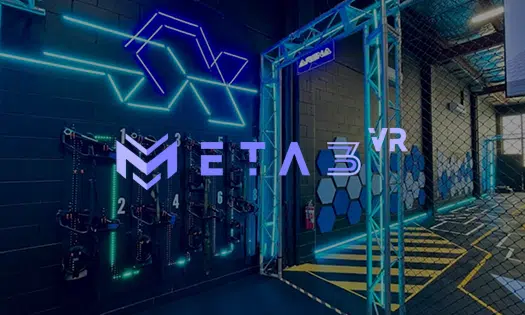Have you ever searched for something specific on Google, only to see irrelevant results? Well, no more!
With the latest algorithm update, BERT short for Bidirectional Encoder Representations from Transformers, the search engine giant has once again proven that enhancing user experience is their top priority. In fact, this is said to be the biggest change to the system since they introduced RankBrain almost five years ago.
Simply put, BERT – which was officially launched last month – is primarily a new technique for natural language processing (NLP) that allows Google to understand language like humans do. The aim is to strengthen the interaction between computers and human language –sentence structures, metaphors, and the combination of words unique to every person.
This means that Google can now understand the relationship between your sentence and your intention in order to provide you with better and more relevant results. In other words, it will allow the search engine to pull up results based on the intention behind the query and not just the words.
Keeping this in mind, let’s dive further into the latest update and the effect it will have on users:
Why Is BERT So Important For Google?
Search queries are becoming increasingly similar to spoken language day by day due to the popularity of voice search. After all, as per research, around 50% of all searches will be done by voice by 2020.
Additionally, people are beginning to use longer phrases in their queries like fully formulated questions – and they expect precise and relevant answers within seconds. This used to force Google to focus only on a couple of keywords that would result in irrelevant information showing up your screen. And this is exactly why they started working on updating the neural network.
For instance, in 2013, Hummingbird was incorporated into the algorithm; instead of searching for individual words in the query, it made interpretation of the entire search query easy to comprehend.
Then in 2015, they released a major update commonly known as RankBrain. This made it possible for the system to search for a word with multiple meanings, thereby allowing it to realize the essence of the query far better than before. It also paved the way for smart search and eventually, BERT.
And now, it’s expected that the latest update will make it possible for split-second searches to be drawn up with utmost precision and relevance – thus saving time and enhancing the overall user experience.
How Will It Actually Affect The Search?
With BERT, the algorithm will be able to understand human language better, no matter the sentence structure or the combination of words used in the search. While prepositions such as ‘from’, ‘at’, ‘with’, etc. were previously ignored by the algorithm, leading to unrelated results. But with the latest update, the search engine will no longer consider these words as trivial, leading to better and more relevant results.
For instance, if a user had searched for “Can you pick up someone else’s cheque book from the bank?” before the BERT update, the system would ignore the intention behind the query and focus more on how to get a cheque book as shown in the snapshot below.
But with BERT, the search engine will not make this mistake – it will understand the intention behind the query in a much more precise way, thereby giving you better results as shown in the picture.
Note: These images are just for explanatory purposes, actual results may vary.
In the above example Google, with the help of BERT, understood the statement and provided an answer like a human would, without ignoring any aspect of the query – rather than focusing on the keywords, it realized the meaning of the search query.
What Happens To RankBrain?
Firstly, RankBrain is a machine-learning artificial intelligence system that helps Google pull up results by going through billions of web pages and shortlisting the ones more fitting of the query. It is not the search algorithm in its entirety, but only a part of it.
And so, most of its learning process is offline – not in real-time which makes it difficult for lengthy, unique queries to be understood and answered.
Ever since the news about the recent update was released, a lot of questions have been raised as to the effect it will have on RankBrain.
Here’s a simple answer: BERT is going to act as a support system for RankBrain for complex queries. Fundamentally, it will be used by the search system to respond to queries and wherever it falls short, or wherever Google thinks a query will be better understood by BERT, it will step up to show relevant and more clear-cut results.
Do You Need To Optimize For BERT?
Not really! Primarily, Google is upgrading itself in order to understand the searcher’s query in a better way.
Just continue to write content the way you have been with more focus on adding relevant and to-the-point answers to common queries. This update is not for creating greater visibility, it is for the search engine to understand human language in a way it had been lacking before. As such, it does not change the core principle of writing quality content for your users.
Will The Update Only Effect Searches?
BERT does not only affect queries alone; it also works for featured snippets. These are basically direct answers to your queries from websites that rank higher and are generally referred to as “the answer box”.
These results appear at the top of the first page and provide a brief explanation of the query, along with a link to the site where the original article is.
What Are the Pros and Cons Of The Google BERT Update?
As everything has pros and cons, BERT is no exception to the rule. Besides assisting and making search results a lot better, the update has the following pros and cons:
- This update is predicted to impact 1 out of 10 searches. This means that 90 per cent of global searches might not benefit from it.
- Google will no longer focus on the keyword density but will try to understand the context of the search query better. While this has certain advantages, it is important to understand that there are many variances and nuances in each language, and it will take time before BERT perfects the approach.
- You might lose some traffic due to this update if your content does not posses the relevance that BERT will be looking for. For example, if your content is vague and irrelevant, it will affect your ranking because Google will show content that is best suited to the user’s query above yours. But fear not – you can use this as a chance to develop and create content that is more specific to your audience’s needs based on common inquiries and what your target users typically like to ask.
What Do We Suggest Regarding BERT?
Though this does not affect your search by a lot, there are still tips that you can follow to end up at the top of the search results. Here is what we suggest:
Use Long-tail Keywords
BERT mainly facilitates the search engine to grasp the context of a search query. As such, you should use long-tail keywords which will make it more likely for your content to rank higher and eventually end up on top. The reason for this is that long-tail keywords often contain the exact questions that users commonly search for.
If you find it difficult to generate long-tailed keywords, use tools like keywordtool.io to help you find and shortlist those that are likely to help your site rank better.
Switch Article Length with Relevance
It is customary for articles to be lengthy and detailed; BERT however, focuses more on the material of your article and how well it relates to what a user has typed into the search bar.
This by no means indicates that lengthy articles will be ignored – they will still be included in the search results. But the ones that have more relevance will rank higher since that’s what this update mainly focuses on.
Switching the focus from lengthy content to better readability, understanding and a strong relation between the query phrase and the article will allow you to rank higher.
Address User’s Concerns
Try to respond to common queries that your target audience searches for and include long-tail keywords in your articles. From text to images to videos, make sure all your content provides a better experience and answers than your competitors.
You never know – you could even show up in a featured snippet if you manage to do it right. After all, SERP zero results are the only source of information that voice-based queries pull up. So by following the guidelines laid down by Google, your content can be featured for numerous voice-based queries.
Though affecting only 10 per cent of searches, BERT is still a big change. For the upcoming weeks, analyse your traffic and evaluate whether it has reduced and by how much.
Since BERT is likely to take time to further learn and develop, it is not easy to respond to the changes brought about by this update.
The best way to cope with this change is to keep working on the quality of your content and you will surely notice better results over time – remember to include long-tail keywords and even common questions that are asked by your target users. Include them in your blogs, whitepapers and other such brand assets so Google reads you as relevant.
With the latest algorithm update, BERT short for Bidirectional Encoder Representations from Transformers, the search engine giant has once again proven that enhancing user experience is their top priority. In fact, this is said to be the biggest change to the system since they introduced RankBrain almost five years ago.
BERT mainly facilitates the search engine to grasp the context of a search query. As such, you should use long-tail keywords which will make it more likely for your content to rank higher and eventually end up on top. The reason for this is that long-tail keywords often contain the exact questions that users commonly search for.
Search queries are becoming increasingly similar to spoken language day by day due to the popularity of voice search. After all, as per research, around 50% of all searches will be done by voice by 2020.









